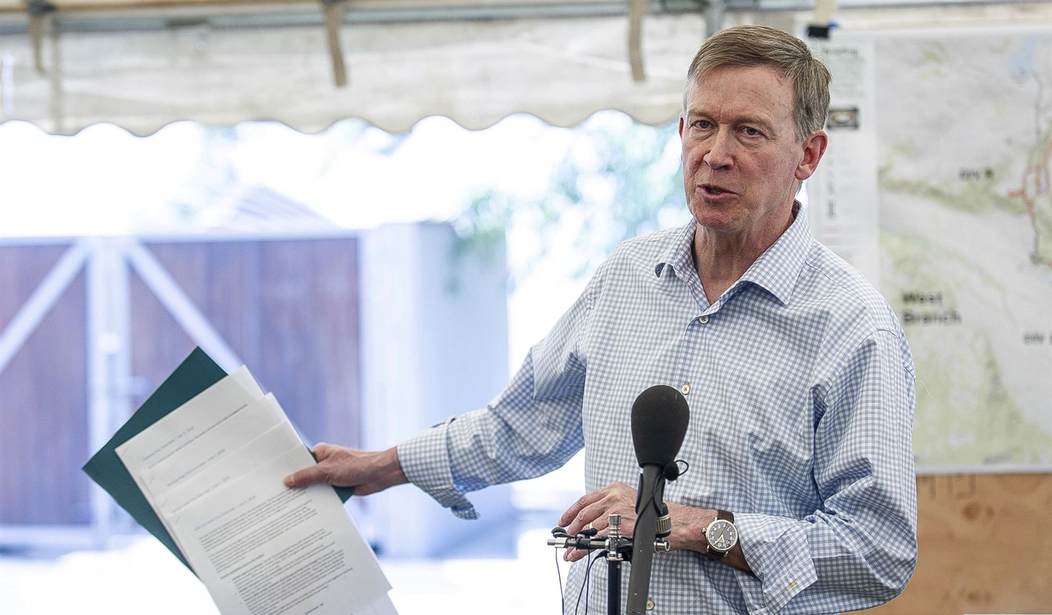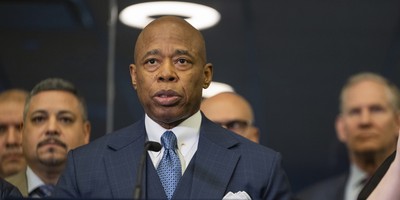When the sacred cow is a pet and you twist her tail, you can expect booing, not mooing, from the cow's friends. That's what happened at the California Democratic Party State Convention in San Francisco over the weekend when two presidential candidates took a turn twisting the cow's tail.
John Hickenlooper, the former governor of Colorado, and John Delaney, a former congressman from Maryland, learned that anyone trying to inform and persuade best be careful in such a crowd. They misjudged their audience by a mile.
"Medicare for All sounds good, but it's actually not good policy, nor good politics," Delaney told the crowd to a flood of boos. He got nary a moo. He tried an amplification to reassure the reasonable, but the reason is scarce in a time and place that grooves on slogans and liberal nostrums. "We should have universal health care," Delaney persisted, "but it shouldn't be the kind of health care that kicks 150 million Americans off their health care." The fierce booing resumed. When Hickenlooper said socialism is nice but the wrong way to persuade an American audience, his remarks were drowned in a chorus of Bronx cheers.
Joe Biden, the grown-up resting comfortably on a double-digit polling lead over his primary rivals, knew better than to taunt this crowd with good sense. He stayed away. The old pol knew a California crowd would be dominated by activists of the left in a place where there's no center-left. Medicare for All is the soup du jour. So popular is the slogan it's becoming legislative language. Bernie Sanders, Elizabeth Warren and, above all, Alexandria Ocasio-Cortez, are the icons who make Democratic hearts flutter this season.
Recommended
The average age of the delegates in San Francisco was hard to discern, but it's an educated guess that many of them learned economics and American history from the textbook "A People's History of the United States" by Howard Zinn, a leftist historian who died in 2010. The book is widely used in both high schools and colleges. It's a volume with lots of misinformation (and disinformation) about how socialism is cool and American capitalism is wicked. It offers economic insights like this: "Why should we accept that the 'talent' of someone who writes jingles for an advertising agency, advertising dog food and gets $100,000 a year, is superior to the talent of an auto mechanic who makes $40,000 a year? Who is to say that Bill Gates works harder than the dishwasher in the restaurant he frequents, or that the CEO of a hospital who makes $400,000 a year works harder than the nurse or the orderly in that hospital who makes $30,000 a year? The president of Boston University makes $300,000 a year. Does he work harder than the man who cleans the offices of the university? Talent and hard work are qualitative factors which cannot be measured quantitatively." Many of the kids, alas, eat this up.
Help is on the way. Wilfred McClay is a history professor at the University of Oklahoma. In an article in The Wall Street Journal, "Reclaiming History from Howard Zinn," he argues that simplistic socialist (slogans) parading as critical thinking is not thinking at all, and it's the opportune time to persuade the young to look beyond victimhood, beyond ideology, beyond socialism.
"We historians have for years been supplying an account of the American past that is so unedifyng and lacking in a larger perspective that Zinn's sweeping melodrama looks good by comparison," he writes. "We can do better."
He tries to do better with a new history of America, "Land of Hope," a deeper examination of that history, arguing for an open mind about changing contexts that require a mastery of detail and expanding discussions that have been narrowly limited to race, class, and gender. His assessment of Christopher Columbus, a favorite foil of the politically correct who scorn Columbus as a plunderer of "Native Americans," for example, is fresh, even-handed and lively.
"Columbus had trouble seeing America for the new thing that it was and could be, and eventually would become," he writes. "The fresh start for the world came at a heavy price for those who were already settled on the land, men, and women for whom San Salvador was not a New World being discovered but an old and familiar world about to be transformed."
History teaches by experience, and it's a mistake for both Democrats and Republicans to think that national elections will conform to the ideas of party activists. George McGovern imagined that. His party may be doomed to learn again what he had to learn. A recent Gallup survey found that nearly half of the Democrats polled say they would consider voting for a socialist. You could call it their last boo.
























Join the conversation as a VIP Member